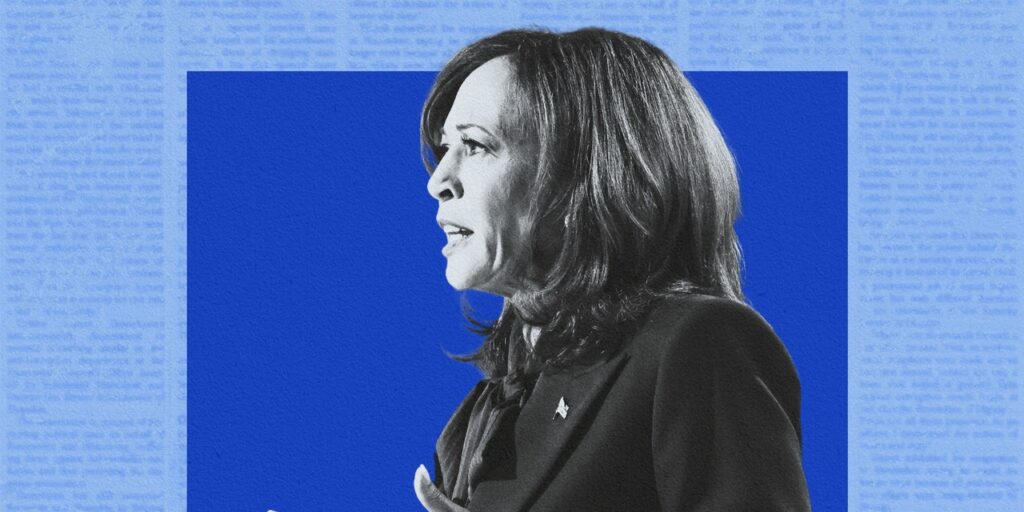During multiple recent appearances, Harris also criticized the Dobbs ruling that overturned the constitutional right to abortion and bemoaned the aftermath of tattered access to that care, while affirming that she’ll “fight for a woman’s right to choose.” This spring, Harris became the first vice president to publicly visit an abortion provider—a Planned Parenthood in Minnesota, with her now running mate Tim Walz, another champion for reproductive justice. And in her policy plan, she has explicitly promised to “never allow a national abortion ban to become law.” No wonder several reproductive-rights orgs (like Reproductive Freedom for All and Emily’s List) have endorsed her campaign.
This month, Harris kicked off a nationwide 50-stop “reproductive freedom bus tour” in Florida. With speeches from Harris and Walz, as well as Harris’s husband Doug Emhoff, Walz’s wife Gwen, and reproductive rights advocates, the tour aims to highlight Harris’s goal of restoring Roe v. Wade’s protections while painting a clear contrast between her vision to increase bodily autonomy and the Trump Administration’s history of restricting it.
And she’s not just talking the talk; Harris’s stance rests on a legacy of action. As a senator, she cosponsored the Women’s Health Protection Act, which would ban states from creating requirements that make abortion care tougher to access. Before that, as California’s attorney general, she prosecuted an anti-abortion activist who allegedly illegally recorded conversations at a Planned Parenthood, and she also sponsored a bill that sought to regulate crisis pregnancy centers (which are known to persuade people not to get abortions based on medically inaccurate counseling).
As Harris has shared, her motivation is deeply personal: In high school, she learned that her best friend was being molested. “So the idea that someone who survives a crime of violence to their body would not have the authority to make a decision about what happens to their body next, that’s immoral,” she told a crowd in Jacksonville, Florida, in May.
Back to top
Gun violence
Ensuring “the freedom to live safe from the terror of gun violence,” as Harris put it at her first campaign event this year, is a major priority for her. Arguably among her most impressive accomplishments as VP is working with President Biden in 2022 to pass the landmark Bipartisan Safer Communities Act (BSCA), which, among a ton of efforts to diminish the consistent threat of gun violence, strengthened background-check requirements, made straw purchasing (buying a gun for someone who legally cannot) a crime, sought to remove guns from the hands of those who’d committed domestic violence, and provided tens of millions in grant funding to ramp up school security.
And when Biden created the White House Office of Gun Violence Prevention shortly after, he chose Harris to oversee it. Since then, she’s worked closely with Biden to put aspects of the BSCA into practice, like collaborating with the Department of Justice to clarify when a person has to get a license to sell guns and conduct background checks. And this year, during a visit to Marjory Stoneman Douglas High School (the site of the Parkland, Florida, mass shooting in 2018), Harris announced the launch of a federal resource center to help with the implementation of Extreme Risk or “red flag” laws (which allow a judge to temporarily seize a gun from a person who may be a threat to themselves or others).

